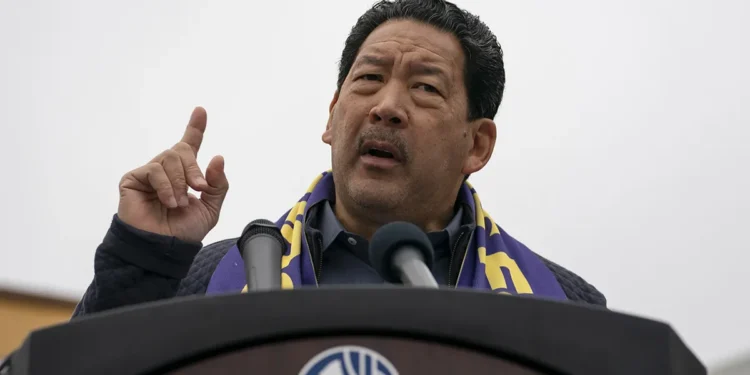Seattle Mayor Bruce Harrell has a message for his city’s tech giants: it’s time to reinvest in the community.
Harrell, speaking at an event Wednesday hosted by the Fremont Chamber of Commerce, said Seattle’s large companies have a “moral obligation to give back.”
The mayor specifically called out Microsoft and Amazon, citing their annual profits. “Microsoft … they made $88 billion last year … they have an obligation to give back to society, as does Amazon,” he said.
Harrell also described Seattle as a “city of innovation,” and one that has become a “great launching pad and fertile grounds for large companies.”
“That’s a good thing,” he said. “That’s not a bad thing.”
His comments reflect a delicate balance faced by Harrell and other city leaders, ensuring that Seattle’s global tech corporations continue to bolster the economy and tax base, while addressing the ripple effects on housing, transportation, and communities.
Harrell has delivered a similar message since taking office in 2022.
“What I’ve tried to do as mayor is to say, without ambiguity, that we value their jobs,” he said of Amazon, Seattle’s largest employer. “We also believe in a culture of accountability.”
During an appearance at the GeekWire Summit in 2022, Harrell urged the business and tech industry to get more involved in civic life to help make improvements in the city.
“There’s just plenty of opportunities for you all to engage,” he said, “and I’m just a call away to facilitate that engagement.”
Harrell, a former attorney in the telecom industry, is seeking re-election next month. He’s facing off against Katie Wilson, a progressive community organizer who won nearly 51% of the vote in the August primary.
The race is drawing national attention, in part due to the contrasting profiles and campaigns between the incumbent and challenger.
Wilson was inspired to run after Seattle voters earlier this year approved a measure creating a publicly funded social housing developer, financed by a 5% tax on salaries above $1 million paid to employees working in the city.
Harrell supported an alternative funding mechanism for social housing in Seattle. The proposed ordinance received financial support from Amazon and Microsoft.
The debate over who should pay for city services and how much underscores a broader tension between Seattle’s progressive tax ambitions and its reliance on the tech industry’s prosperity.
Harrell briefly spoke about taxes during Wednesday’s event, noting how the city “lost 10,000 jobs from Amazon” following years of friction over tax policy in Seattle. “That’s not a sustainable strategy, just to tax people,” he said.
However, Harrell earlier this year supported a proposal that would shield smaller companies from paying Seattle’s business & occupation tax while increasing rates for larger companies.
Harrell was city council president in 2018 when lawmakers approved and then repealed a controversial per-employee “head tax” on big businesses. The council in 2020 later passed the “JumpStart” payroll tax, which Wilson helped craft.
Last month, Wilson, whose platform is focused on raising more revenue “from the wealthiest corporations,” said she aims to have a working relationship with Amazon and other tech companies, calling them “very important players in our city and our economy.”
While tech dominates the Seattle economy, Wilson is interested in diversifying that focus. In a recent post on Reddit, she cautioned that a heavy reliance on the tech sector could pose problems for Seattle down the road.
“We’ve really been blithely riding the tech wave for the past 15 years and I don’t think we can just assume that will continue,” she wrote.
At the event Wednesday, Harrell also discussed public safety and the city’s new high-tech operations center designed to help officers fight crime in real time.
The Real Time Crime Center (RTCC) pulls live footage and data from surveillance cameras and other sources into a centralized command room staffed by analysts up to 20 hours a day.
Critics, including Wilson, have raised concerns about the federal government using surveillance footage to target immigrants.
Seattle Police Department Captain James Britt said earlier this year that data requests from outside agencies, including federal law enforcement, are screened and must comply with state and local laws. “We control where all of our data goes,” Britt said at a press event in July touting the RTCC.
Harrell reiterated the point on Wednesday, saying that third parties cannot obtain footage. He also noted other cities that have similar systems in place.
“We have actually caught criminals because of the technology,” he said.
Harrell last month announced a “responsible AI plan” that provides guidelines for Seattle’s use of artificial intelligence and its support of the AI tech sector as an economic driver.







